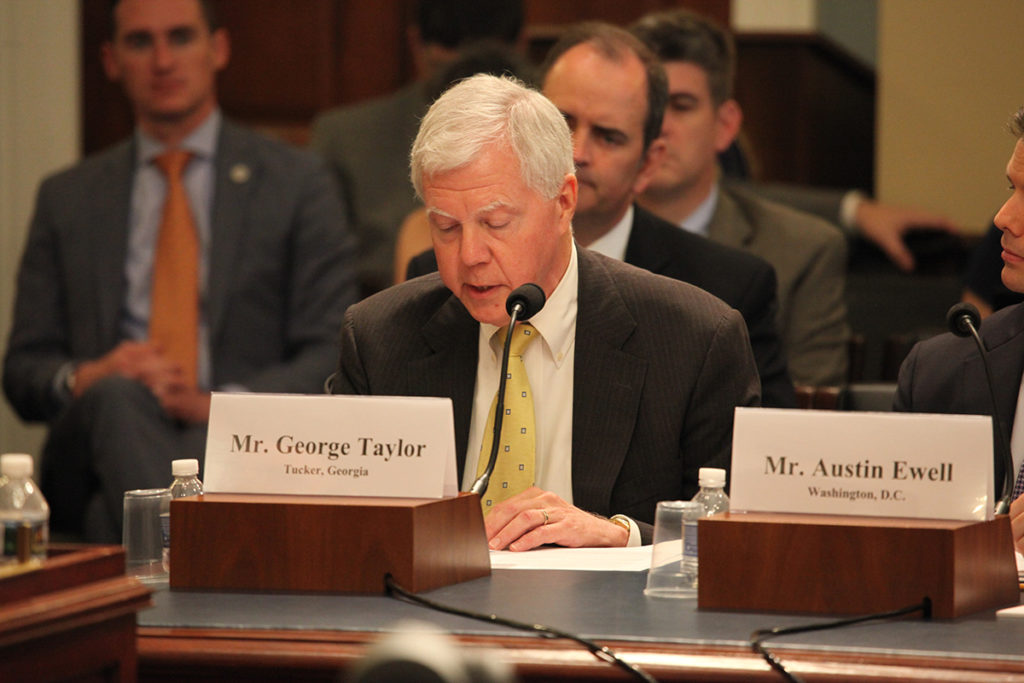
Electric cooperatives are demanding transparency for their members when power marketing administrations pass down costs for compliance with environmental regulations.
George B. Taylor Jr., Oglethorpe Power Corp.’s deputy general counsel, speaking on behalf of the Southeastern Federal Power Customers Inc., took that message to Capitol Hill on July 11.
“Every cost impact on rural electric cooperatives or public power utilities is passed on directly to our consumers—many residents of rural areas who are already struggling,” Taylor told the House Natural Resources Subcommittee on Water, Power and Oceans.
“Our responsibility is to do everything in our power to manage these risks and costs.”
Based in Tucker, Georgia, Oglethorpe supplies power to 38 distribution co-ops throughout the state and owns or operates 7,843 megawatts of generating capacity, including nuclear, gas, coal, oil and water. Oglethorpe members also buy about 618 MW a year from Southeastern Power Administration. SEPA gets its electricity supplies from projects owned by U.S. Army Corps of Engineers.
SEPA’s rates have increased lately in part because of carrying environmental compliance costs incurred by the Corps, said Taylor. Plus, customers face higher costs from purchases of replacement power when electricity from Corps projects is unavailable.
“The precise cost breakdown is missing from the public domain,” said Taylor.
The Southeastern Federal Power Customers Inc. is a group of electric cooperatives and municipal utilities that represent more than 6 million consumers of public power in the Southeast. SEFPC wants Congress to approve legislation (H.R. 5556) to illuminate energy supply transactions and costs involving Corps hydroelectric power projects throughout the Southeast.
The bill, sponsored by Rep. Paul Gosar, R-Ariz., would require SEPA to include in each monthly bill the customer’s estimated share of direct and indirect costs for compliance with federal environmental laws affecting the conservation of fish and wildlife. The Bonneville Power Administration, Western Area Power Administration and Southwestern Power Administration are also covered by the bill.
Customers of these other power marketing administrations also support the objectives of this bill, and the Colorado River Energy Distributors Association has submitted a letter of support.
Taylor noted that the state public utility commission already imposes similar requirements on utilities it regulates and the transparency has been helpful.
“While SEPA staff continues to work with Corps accountants to ensure that only appropriate costs are charged to power customers, in many cases environmental costs must be shared by power customers,” Taylor told the lawmakers. “The proposed legislation would provide valuable insight into an important cost driver that has affected SEPA’s power marketing in recent years.”
Cathy Cash is a staff writer at NRECA.